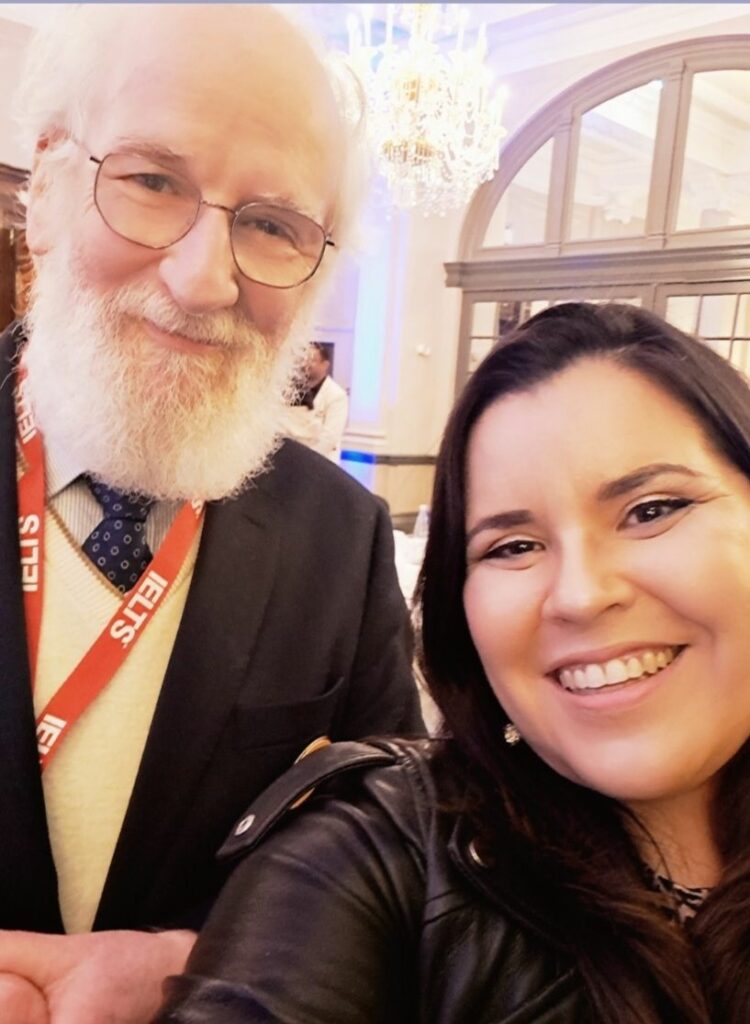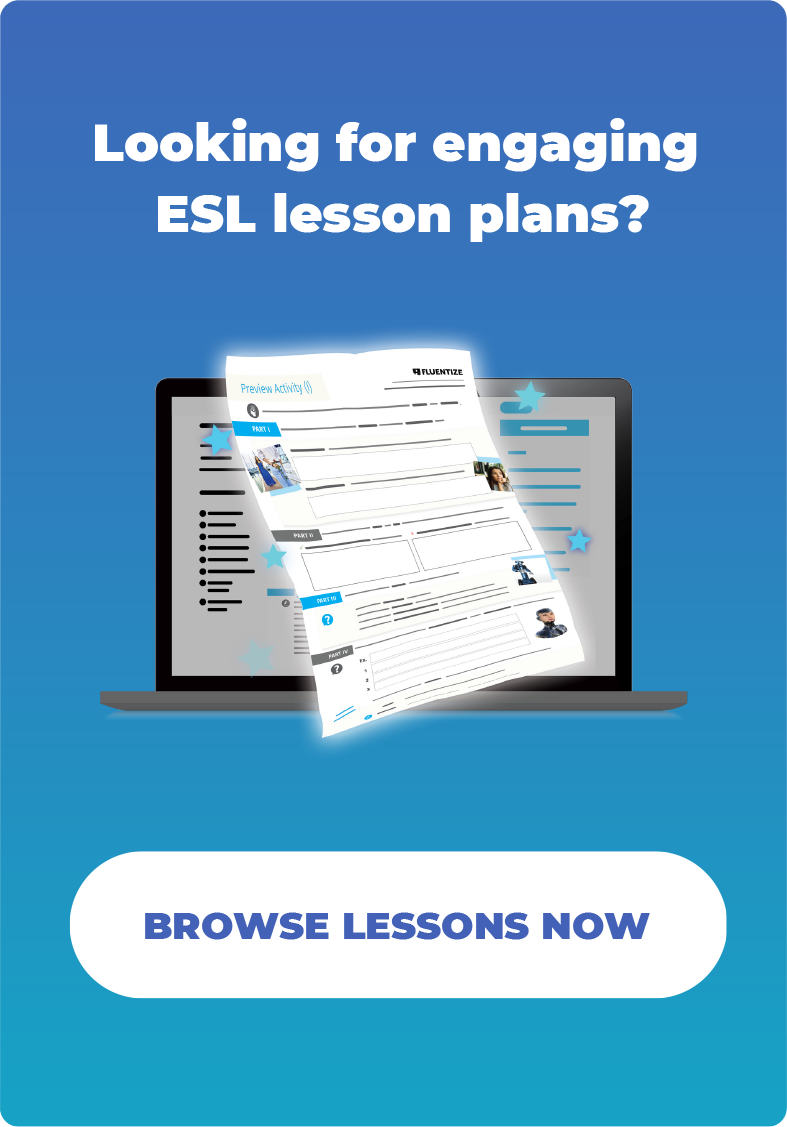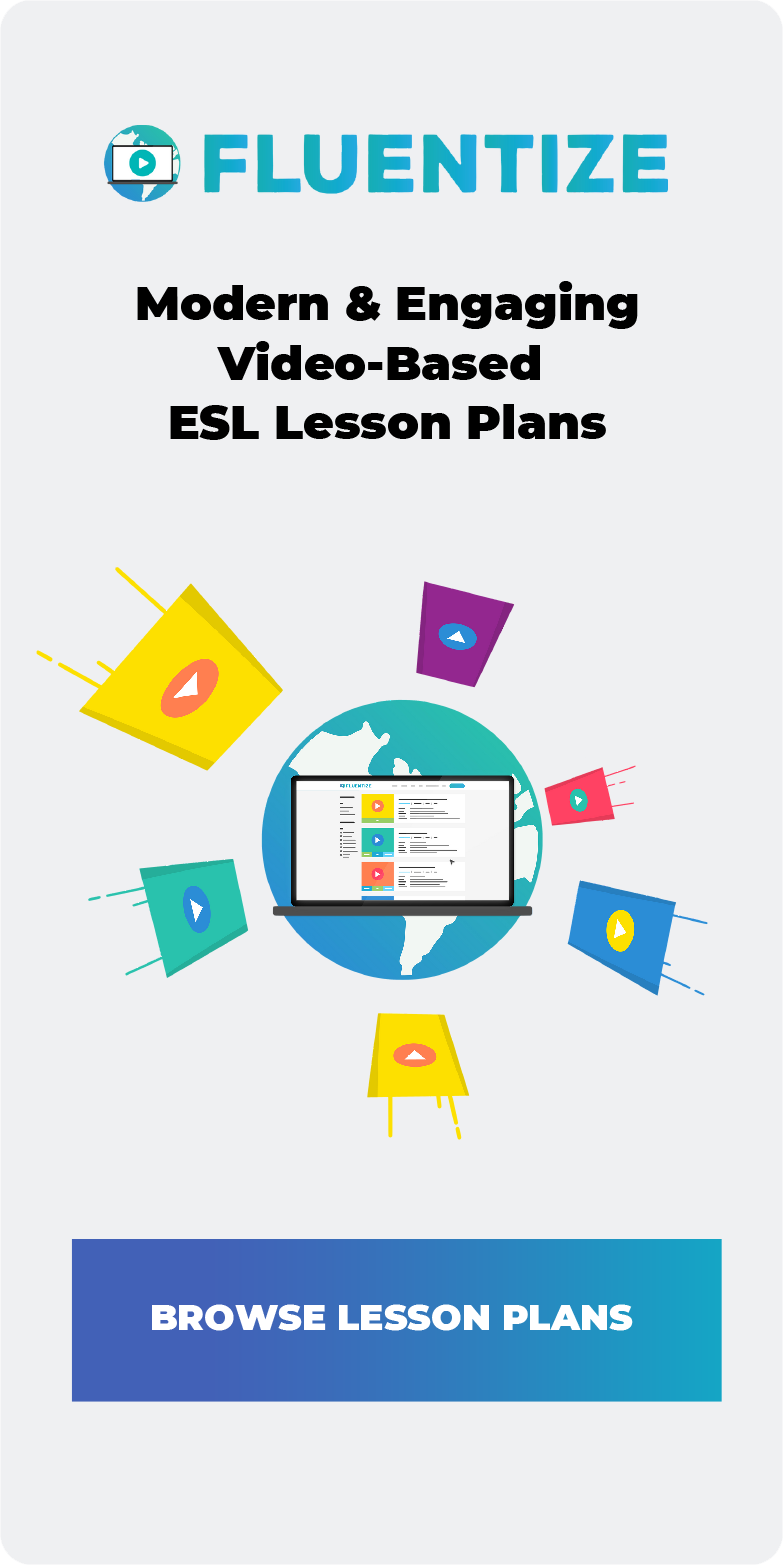As one of the many non-native English teachers out there making their mark today, I’ve got some insights to share. I’ve been teaching English for over 20 years and training teachers for the last 5 years. As a non-native English teacher, this post is for others in the same boat. I’m not a big fan of the label “non-native English teacher”, but I’ll use it in this post for a reason.
Throughout my career as both a teacher and a trainer, I’ve worked with a lot of different teachers. This includes teachers from many countries and backgrounds, and yes, many native English teachers too. It’s really touching how many messages I get from other non-native English teachers.
They thank me for speaking up about the unfair things we sometimes face when we try to get teaching jobs. As a non-native English teacher myself, I’ve always felt I had to work extra hard to show I’m good at what I do. I think a lot of you might feel the same way.
Being a non-native English teacher myself, I know what it’s like to feel like you have to work really hard, three times more than usual, to show that you’re good at your job. That’s why I did two MAs, and now I’m working on a PhD in the UK. I’m also improving my teaching skills through CELTA and Trinity teacher training courses. We need a shift in mindset, I’ve always believed in my abilities and what I can bring to the table. And you should too.
For this reason, I wanted to write this blog to share what it’s like to be a non-native English teacher in the UK. But it’s not just about me. I want to talk about what makes us, as non-native English teachers, special. We bring so much value to ELT. This blog is more than just my story. It’s about recognising and valuing the different skills and experiences that both native and non-native English teachers bring to ELT.
We’re going to explore these different experiences and see how they work together. This makes ELT a stronger and more welcoming community.
Teachers’ Qualifications
Well, let’s talk about something that’s been on my mind a lot lately, and I reckon it’s crucial for all of us in the ELT community to discuss. The myth of the native English speaker as the ideal teacher — it’s a topic that’s everywhere, right? On social media, in language school ads, and, unfortunately, it’s what some students have come to expect. But here’s the thing: this belief is rooted in misconceptions and, to be honest, it’s time we challenge it.
From my perspective, the real focus should be on a teacher’s qualifications, their actual experience, and their ability to teach specific skills or prepare students for exams. And let’s be clear, a teacher’s passport is NOT proof of qualification, mind you.

For novice teachers, I’d say starting with a Cambridge CELTA or Trinity CertTESOL is a good idea, along with a Bachelor’s degree in English or a related subject. For more senior roles, a Cambridge Delta/Trinity DipTESOL or a Master’s in TESOL or Applied Linguistics should be the standard. This might vary from country to country, but generally, these are solid indicators of a teacher’s qualifications.
If you ask me, there are some big misunderstandings coming from failed or outdated education systems. There’s this belief that learning English from non-native teachers in public schools isn’t effective, which leads to people preferring native speakers over non-native English teachers.
However, I believe the real issue is not whether the teacher is native or not, but the quality of their teaching.
I remember back in my secondary school days in Brazil, we only had English lessons for an hour, twice a week. And guess what? Most of the lesson was in Portuguese, focusing mostly on grammar. It wasn’t the fault of the teachers but the educational system in place at the time.
People study English for years in public schools and then leave without being able to speak it properly. Then, the idea forms that because they were taught by local, non-native speakers, they can’t speak English. But this is just a misconception.
What can we learn from David Crystal?
On that note, I recently stumbled upon two fantastic videos featuring David Crystal, a renowned linguist and expert in the English language. For those who may not know him, Crystal has profoundly influenced our understanding of language. His insights are something I believe every English teacher, whether native or non-native, should explore. Here are the enlightening videos:
According to Crystal, the standard language promotes both national and international intelligibility, striking a balance between the need for identity (expressed through local accents and dialects) and the need to be understood.
“It’s the tension now between these two forces, intelligibility saying let’s all speak the same, on identity saying no, let’s be different,” he explains. Being intelligible means being understood by others, no matter where you’re from.
Take accents, for instance. Whether you say ‘bath’ with a long ‘a’ or not, the important thing is, are you being understood? To me, this highlights that as teachers, our accent isn’t the most important thing. It’s about clear communication. For Crystal, the focus in language teaching should be on intelligibility rather than mimicking a native speaker model.
As long as a learner and the teacher are understandable, their accent or variation should be respected – and why not, celebrated. This approach values each speaker’s identity and uniqueness.
I completely agree with him. It’s not about losing your accent; it’s about being clear and understandable. I believe using the right register is also important. Register refers to the formality or informality of the language used in different situations. Understanding and using the appropriate register is key in communication because it ensures that your message is received in the right context and tone.
Crystal also debunks the idea of the ‘native speaker’ as the ideal language learning model, calling it a myth (I love that!). This really resonates with me because it challenges the outdated notion that only native speakers have the ‘right’ kind of English. He also points out that Received Pronunciation (or, “RP”), often considered the ‘standard’ native English accent, is pretty rare nowadays. RP is a type of British accent often thought of as ‘standard’ English in the UK. It used to be seen as the accent of the upper class and educated.
Crystal says that “there was never a native speaker in the sense of somebody who hasn’t been influenced by some sort of local variation here and there.” This tells us that language isn’t static; it’s influenced by our surroundings. It’s funny to think that what was once seen as the ‘elite’ English accent is now just one among many. Crystal notes that RP is no longer the posh, far-back kind of accent and now makes up a small percentage of English accents.

“Remember that RP was only ever spoken by about at most in its history 5% of the speakers of England… these days it’s probably around about 2% of the population.”
– David Crystal
This makes you wonder, doesn’t it? What we often consider the ‘standard’ might just be a drop in the ocean of language diversity. I remember when I first moved to the UK more than 15 years ago, I was surprised at the variety of accents and how each one told its own story. Isn’t it fascinating how language reflects our journey and experiences? There are so many factors in place because we human beings are a mix of everything.
That reminds me of a beautiful TED talk by Taiye Selasi: Don’t ask where I’m from, ask where I’m a local. In this talk, Taiye explores the concept of ‘multi-local’ people, those who feel at home in multiple places and cultures. She challenges the traditional notions of belonging and identity, arguing for a more fluid understanding of where we’re ‘from.’
I love this talk because it speaks to the heart of many people, like me, who have lived in various cultures and don’t fit into one single label of identity.
When we talk about a “native English speaker,” it really makes you wonder, doesn’t it? What exactly does that mean? Are we talking about someone from London, York, Auckland, Abuja or Toronto? Each place has its own unique way of speaking English.
And then, consider this scenario:
Imagine a person born in Brazil, but their parents are from the UK. Does that make them a native speaker of English? It’s not so clear-cut, is it? The concept of a native speaker is more complex and varied than we often think.
Taiye’s talk also resonates with Crystal when he talks about the myth of a “pure” native speaker. Crystal’s point that the concept of a ‘pure’ native speaker is a myth really hits home for me. Every speaker, native or not, is influenced by their environment and experiences. This idea of an untouched, perfect native speaker model, especially in English, seems quite outdated.
I’ve always believed that our individual language journeys add to the diversity of the language, not detract from it. I believe that holding on to the idea of a ‘pure’ native speaker, which is often mixed with notions of whiteness, is not just outdated but harmful. It ignores the beautiful diversity of English around the world and limits our understanding of what it means to be a speaker of a language. Language is a reflection of our diverse experiences, not a narrow standard to be imposed.
Lastly, Crystal challenges the idea that native speakers are inherently better language teachers. I mean, think about it, right? Is being a native speaker automatically a sign of a good teacher? (the answer is NO) He argues that a non-native speaker who knows English grammar well and can teach effectively might actually be better than a native speaker who lacks this knowledge.
The advantages of being a non-native English teacher

If you thought that non-native speakers (of English) don’t have an advantage, you’re very wrong. As non-native English teachers, we bring a wealth of unique advantages to the classroom that enhance the learning experience for our students. Our backgrounds and personal journeys with the English language equip us with a deeper empathy and understanding, which we can use to connect with and inspire our learners.
So, I’ll delve into some more key advantages non-native English teachers have and share how these aspects contribute to making our teaching more effective and relatable.
Being role models of successful English learners
We, as non-native English teachers, stand as living proof that mastering English is entirely achievable. Our students see themselves in us because we’ve faced similar learning challenges.
I began my English learning journey as a child, but I’ve met teachers who started as young adults — which is incredibly inspiring. Isn’t it amazing how varied our learning paths can be? Don’t you think this variety in our experiences makes us more relatable to our students? Sharing my own story of learning English, I’ve seen directly how it motivates students. They see my journey as achievable and feel encouraged to push through their own learning challenges.
Teaching effective learning strategies
Our personal experience with learning English gives us insight into effective strategies for different types of learners. We tend to know how to help students remember and use vocabulary, grasp grammar concepts, and improve their speaking skills.
For instance, I often share with my students how I used note-taking strategies to build my vocabulary, a technique I found highly beneficial. Isn’t it interesting how these personal strategies can be adapted for various learners? How can we tailor these strategies to suit individual student needs?
Providing more explicit language information
Our detailed study of English grammar and vocabulary allows us to explain complex language concepts more clearly than someone who might not have studied English in depth. Many native speakers might not have delved into English grammar at school or university as we have.

For example, explaining articles in English – we get how complicated they can be because we’ve had to learn them ourselves. This depth of understanding enables us to craft explanations that resonate with our learners’ experiences.
Overall, by embracing our unique journeys as non-native English teachers, we find strength in our intimate understanding of the learning process. Our personal struggles and triumphs in mastering English grammar and vocabulary create a relatable bridge between us and our students
Anticipating learning difficulties
Our background in learning English as a second language lets us foresee potential challenges our students may encounter.This ability to predict problems is really helpful in planning lessons that deal with these issues ahead of time. I believe this ability to anticipate learning difficulties is a significant advantage.
In CELTA courses, for instance, there’s a specific section in the lesson planning template for ‘anticipated problems,’ reflecting the importance of this skill.
For example, when teaching Brazilian learners or those from languages that don’t use articles, like Turkish, I focus more on this area. I also pay attention to explaining the present perfect tense, as this can be a particularly tricky aspect for Brazilians, given the lack of an equivalent tense in Portuguese. Understanding these nuances enables us to tailor our teaching approach, ensuring our lessons are as effective as possible.
Sharing the same first language as their students (when that’s the case)
When we share the same first language as our students, we can more easily explain English’s nuances by drawing parallels with their native language. This can be extremely helpful in demystifying complex language concepts.
For example, when I teach Brazilian students, I relate English idioms to similar expressions in Portuguese, making them more understandable. On the other hand, I recall feeling a bit frustrated while teaching in Turkey because I couldn’t use Turkish to quickly explain certain concepts in class. This experience taught me the value of being able to leverage a shared first language in the classroom, both as a tool for explanation and as a way to build a connection with students.
As a non-native teacher, boosting your confidence and improving your teaching skills is key. Now, where to start? Well, in my opinion, one crucial step is getting formal qualifications if you haven’t already. I can’t stress enough how important it is to have a credible qualification like the CELTA or the CertTESOL under your belt. These aren’t just certificates; they’re your gateway to a whole new level of teaching. They equip you with the right tools and methodologies, making you stand out in the competitive ELT market.
Non-Native English Teachers & Continuing Professional Development
Now, let’s talk about CPD (continuing professional development). Trust me, the learning journey is never-ending, and that’s the beauty of our profession. Staying updated with the latest in teaching trends and methods? That’s where CPD comes in. There are loads of webinars and online courses out there.
You’ve got platforms like FutureLearn and Coursera offering courses on everything ELT-related, and many of them don’t cost a penny. Also, don’t forget about the Teaching English website by the British Council — it’s a goldmine for professional development resources.

And, don’t overlook the power of networking. LinkedIn is more than just a professional platform; it’s a community of educators sharing insights, ideas, and opportunities.
By being active on LinkedIn, you’re not just building your professional network; you’re immersing yourself in a community that’s passionate about teaching. Share your experiences, engage with others’ content, and watch your network grow. This isn’t just about finding job opportunities; it’s about being part of a vibrant community that shares your passion for teaching.
Message to schools about non-native teachers
Now, let’s turn our attention to schools and language institutions. It’s absolutely vital for these places to nurture an environment that truly values the strengths of both native and non-native English teachers. I am going to share some recommendations and practices that make a difference.
Firstly, schools need to actively aim for diversity in their hiring practices. We’re not just talking about ticking boxes here. It’s about appreciating the distinct perspectives and skills that both native and non-native teachers offer. I’ve lost count of how many times I’ve come across job ads on LinkedIn that specify “native English speakers only.” This kind of specification is discriminatory and overlooks the rich contributions non-native teachers can offer. I firmly believe that a teaching team with varied backgrounds can create a more dynamic and comprehensive learning experience for students.
Professional Development Opportunities For Non-Native English Teachers
Moving on to professional development opportunities, it’s crucial that schools provide equal access to training and development programmes for all their teachers, no matter if they are native or non-native English speakers. I mean, wouldn’t it be great if all teachers had the same chances to grow and improve? This is not rocket science.
These opportunities could range from workshops and seminars to even sponsoring advanced qualifications. It’s about equipping every teacher with the necessary tools to excel and evolve in their careers. I think that when schools invest in their teachers, they’re really investing in the future of their students.
Collaboration among native and non-native English teachers
In addition, let’s not forget the importance of collaboration and mentorship among teachers. Why not pair up more experienced teachers with those who are just starting? Again, it doesn’t matter if they’re native or non-native English speakers. This approach creates a supportive environment where experienced teachers can pass on their wisdom, and new teachers can introduce fresh ideas and viewpoints. Isn’t it amazing how much we can learn from each other? I truly believe that such mentorship and teamwork can lead to incredible growth and innovation in teaching practices and should be more disseminated in schools.

I’m a collaborator with Fluentize, an online resource full of video-based lesson plans designed for English language teachers. At Fluentize, our team is made up of a mix of both native and non-native English teachers. This is valuable because it brings diverse perspectives and insights into our lesson plan creation, ensuring a well-rounded and inclusive approach to language teaching. By combining the unique strengths and experiences of both native and non-native English teachers, Fluentize strives to offer a comprehensive and culturally sensitive resource that resonates with a global audience of learners.
Lastly, I think schools should always recognise and celebrate the achievements of all their teachers. Whether it’s a native teacher who’s nailed a new teaching technique or a non-native teacher who’s introduced some groundbreaking ideas in the classroom, every success deserves a round of applause.
Recognising these achievements boosts morale and clearly shows the valuable contributions each teacher makes. I personally feel that celebrating these milestones fosters a positive and motivating atmosphere in the school — I’d love to work in a school that adopts this practice.
When schools and language institutions adopt these policies and practices, they can create an environment where every teacher feels valued and has the opportunity to thrive. This leads to a community where each teacher’s unique strengths are recognised and used to enhance the learning experience for both students and the institution as a whole.
Final thoughts on working as a non-native English teacher
So there you have it. Equip yourself with the right qualifications, keep learning through CPD, and connect with the teaching community. If you can make progress in each of these areas, you’re likely to gain an advantage.
Do you have any thoughts, ideas, or insights for other non-native English teachers? We’d love to hear them. Feel free to leave them in the comments below. Thanks for listening!










1 thought on “Insights For Non-Native English Teachers”
This article provides a balanced perspective on the role of non-native English teachers, highlighting their unique strengths and addressing common misconceptions in language education.